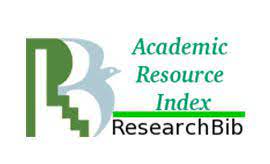THE FUNDAMENTALITY OF THE LAWS OF INNOVATION PROCESSES IN THE EDUCATIONAL ECO ENVIRONMENT: THE ASPECT OF TEACHING PHYSICS ON THE BASIS OF STEM
DOI:
https://doi.org/10.51707/2618-0529-2023-28-12Keywords:
STEM education, physics teaching methodology, transdisciplinarity, fundamentality, innovation.Abstract
In the article, as a result of the research, the main directions of innovations in the educational activity of higher education institutions in the context of the development of innovations, in particular STEM education, are identified and analyzed. It has been established that the development of innovativeness affects the modernization of higher education, in particular technical in the context of STEM education. It has been found that the development and implementation of STEM education as a component of innovativeness affects the modernization of physics teaching methods in technical higher education institutions, and physics in particular. This modernization requires taking into account the general trends in the development of psychological and pedagogical aspects of higher education in the context of globalization and European integration processes. The main regularities and conditions of functioning of innovative educational processes in technical institutions of higher education are considered. The concepts of interdisciplinarity and levels of integration of scientific knowledge are analyzed and highlighted: intradisciplinary, interdisciplinary, supradisciplinary, transdisciplinary. The result of the innovation process is the transformation of new types and ways of human life into socio-cultural norms and models that ensure their institutional design, integration and consolidation in the culture of society. New knowledge that arises as direct experience within the framework of research work is removed from the sphere of the cognitive process and transformed into an innovative process in new systems of technological activity. STEM innovations are one of the main socio-cultural prerequisites for the development of social practice, its enrichment with new cognitive, technological forms of human experience, which are subject to reproduction in the process of their mastery by students of higher education of the new generation. It was determined that the achievement of the professional goal for the subject of training is ensured by integrated scientific knowledge of physics and professional disciplines, which is a prerequisite for mastering methods of solving industrial problems, where the difference between educational and professional activities from practical and cognitive activities is considered, taking into account the concept of STEM education.
References
Honcharenko, S. U. (2004). Pryntsyp fundamentalizatsii osvity [The principle of fundamental education]. Naukovi zapysky. Seriia: Pedahohichni nauky — Academic Notes. Series: Pedagogical Sciences, 55, 3–8 [in Ukrainian].
Rosenberg, J. M., Beymer, P. N., Phun, V., & Schmidt J. A. (2023). Using intensive longitudinal methods to quantify the sources of variability for situational engagement in science learning environments. IJ of STEM Education 10, 68. DOI: https://doi.org/10.1186/s40594-023-00449-0.
Xie, K., Vongkulluksn, V. W., Heddy, B. C., & Jiang, Z. (2023). Experience sampling methodology and technology: an approach for examining situational, longitudinal, and multi-dimensional characteristics of engagement. Educational Technology Research and Development. DOI: https://doi.org/10.1007/s11423-023-10259-4.
Baierle, I. C., Siluk, J. C. M., Gerhardt, V. J., Michelin, C.d.F., Junior, Á. L. N., & Nara, E. O. B. (2021). Worldwide Innovation and Technology Environments: Research and Future Trends Involving Open Innovation. Journal of Open Innovation: Technology, Market, and Complexity, 7, 4, 229. DOI: https://doi.org/10.3390/joitmc7040229.
Siluk, J. C., Kipper, L. M., Nara, E. O., Junior, A. L. N., Dal Forno, A. J., Soliman, M. et al. (2017). A performance measurement decision support system method applied for technology-based firms’ suppliers. Journal of Decision System, 26, 93–109.
Millers, M., & Gaile-Sarkane, E. (2021). Management Practice in Small and Medium-Sized Enterprises: Problems and Solutions from the Perspective of Open Innovation. Journal of Open Innovation: Technology, Market and Complexity, 7, 214.
Albahari, A., Klofsten, M., & Rubio-Romero, J. C. (2018). Science and Technology Parks: A study of value creation for park tenants. Journal of Technology Transfer, 44, 1256–1272. Retrieved from: https://link.springer.com/article/10.1007/s10961-018- 9661-9.
Davies, G. H., Flanagan, J., Bolton, D., Roderick, S., & Joyce, N. (2021). University knowledge spillover from an open innovation technology transfer context. Knowledge Management Research & Practice, 19, 84–93. DOI: https://doi.org/10.1080/14778238.2020.1746204.
Atamanchuk, P. S. (2012). Osnovni priorytety ta oriientyry yakisnoho navchannia fizyky [The main priorities and benchmarks of quality teaching of physics]. Zbirnyk naukovykh prats Kamianets-Podilskoho natsionalnoho universytetu imeni Ivana Ohiienka — Collection of Scientific papers Kamianets-Podilskyi National Ivan Ohiienko University, 18, 5–8 [in Ukrainian].
Sydorenko, V., & Bilevych, S. (2004). Fundamentalizatsiia profesiinoi pidhotovky yak odyn iz priorytetnykh napriamiv rozvytku vyshchoi osvity v Ukraini [Fundamentalization of professional training as one of the priority areas of development of higher education in Ukraine]. Vyshcha osvita Ukrainy — Higher education of Ukraine, 3, 35–41 [in Ukrainian].
Podopryhora, N. V. (2016). Metodychna systema navchannia matematychnykh metodiv fizyky u pedahohichnykh universytetakh [Methodical system of teaching mathematical methods in Physics at pedagogical universities]. Kirovohrad : FOP Aleksandrova M. V. [in Ukrainian].
Vozniuk, O. V., & Dubaseniuk, O. A. (2009). Tsilovi oriientyry rozvytku osobystosti u systemi osvity: intehratyvnyi pidkhid [Targeted guidelines for personality development in the education system: an integrative approach]. Zhytomyr : Vyd-vo ZhDU im. I. Franka [in Ukrainian].
Stryzhak, O. Ye., Slipukhina, I. A., Polikhun, N. I., Chernetskyi, I. S. (2017). STEM-osvita: osnovni definitsii [STEM-education: main definitions]. Informatsiini tekhnolohii i zasoby navchannia — Information Technologies and learning tools, 62, 6, 16–33 [in Ukrainian].
Stryzhak, O. Ye. (2016). Transdystsyplinarnist navchalno-informatsiinoho seredovyshcha [Transdistsiplіnarnіst of educational-informative environment]. Naukovi zapysky Maloi akademii nauk Ukrainy — Scientific Notes of Junior Academy of Sciences of Ukraine, 8, 13–27 [in Ukrainian].
Kuzmenko, O., Dembitska, S., Miastkovska, M., Savchenko, I., & Demianenko, V. (2023). Onto-oriented Information Systems for Teaching Physics and Technical Disciplines by STEM-environment. International Journal of Engineering Pedagogy, 13 (2), 139–146. DOI: https://doi.org/10.3991/ijep.v13i2.36245.
Downloads
Published
How to Cite
Issue
Section
License
Copyright (c) 2024 Scientific notes of Junior Academy of Sciences of Ukraine

This work is licensed under a Creative Commons Attribution 4.0 International License.













